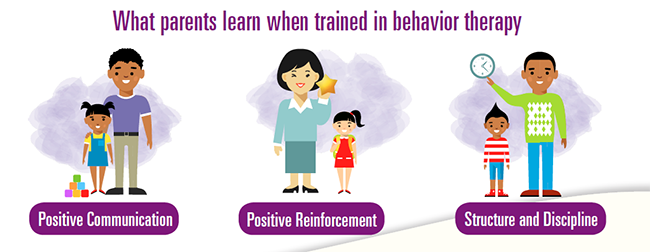Checking Out Efficient ADHD Treatment Alternatives for All Ages
The intricacies of Focus Deficit Hyperactivity Disorder (ADHD) present distinct obstacles across different age groups, requiring a detailed expedition of effective treatment alternatives. A mix of behavior therapies, pharmacological treatments, and way of living adjustments has revealed promise in attending to the varied demands of people with ADHD.
Comprehending ADHD and Its Impact
Attention-Deficit/Hyperactivity Condition (ADHD) is a neurodevelopmental problem identified by persistent patterns of inattention, attention deficit disorder, and impulsivity that can considerably impact numerous aspects of an individual's life. It commonly manifests in childhood, although signs and symptoms can persist right into the adult years. The core signs and symptoms of ADHD can interrupt educational performance, prevent social communications, and make complex job-related ventures.
Individuals with ADHD typically deal with maintaining emphasis on jobs, organizing activities, and complying with with on instructions, which can lead to scholastic underachievement (Depression Treatment). In social contexts, impulsivity may cause problems in forming and maintaining relationships, as people may disrupt conversations or make rash decisions without considering consequences
In addition, ADHD can co-occur with other psychological health and wellness conditions, such as stress and anxiety and anxiety, further complicating diagnosis and therapy. The variability in sign discussion suggests that ADHD can affect individuals in a different way, demanding a personalized technique to monitoring. Recognizing ADHD's multifaceted impact is critical for developing effective techniques that support people in browsing everyday challenges and accomplishing their capacity. Comprehensive recognition of ADHD's nature and effects lays the groundwork for checking out appropriate therapy alternatives customized to each person's demands.
Behavioral Therapies for ADHD
Countless behavior modifications have been established to properly attend to the obstacles connected with ADHD, focusing on changing specific behaviors and promoting necessary abilities. Among the most acknowledged strategies are cognitive-behavioral therapy (CBT), parent training, and social skills training.
CBT assists people recognize and change negative thought patterns and behaviors, promoting a more favorable expectation and boosted self-regulation. This treatment frequently includes functional approaches for managing impulsivity and boosting organization. Parent training programs equip caregivers by equipping them with strategies to enhance positive behaviors and established regular limits, which can be particularly useful for kids with ADHD.
Social skills training is one more vital element, teaching individuals with ADHD just how to communicate properly with peers - Depression Treatment. This method often includes role-playing and responses to improve interaction, collaboration, and problem resolution skills
Including these behavior modifications into a detailed treatment strategy can substantially improve working and lifestyle for individuals with ADHD. Eventually, the performance of these treatments depends on tailored strategies that consider the special demands of each person, thus promoting strength and adaptability in every day life.
Drug Options Available
For many individuals with ADHD, medication can play a substantial duty in managing signs and boosting total functioning. The two main groups of medications prescribed for ADHD are energizers and non-stimulants.
Stimulants, such as methylphenidate and amphetamine-based medicines, are one of the most frequently used therapies. These drugs work by boosting the levels of natural chemicals, particularly dopamine and norepinephrine, in the mind, which helps enhance interest and lower impulsivity and hyperactivity. They commonly yield fast outcomes, making them a recommended choice for several clients.

It is crucial for health care providers to perform a comprehensive assessment to figure out one of the most proper medication based upon specific needs, case history, and prospective side impacts. Normal follow-up and surveillance are also vital to make sure the efficiency of the picked therapy and to make any needed modifications.
Way Of Life Modifications to Consider
Managing ADHD effectively extends past browse around this site drug, as way of life modifications can substantially improve overall well-being and signs and symptom control. Including structured regimens is critical; constant routines assist people with ADHD handle their time successfully and lower feelings of overwhelm.
Regular exercise is another vital element. Exercise not just assists to improve concentration but additionally enhances mood and reduces stress and anxiety degrees. Activities such as yoga exercise or team sports can be specifically helpful, promoting both physical fitness and social communication.
Nutrition additionally plays a crucial function. Depression Treatment. A well balanced diet plan rich in omega-3 fatty acids, entire grains, and lean proteins can add to improved emphasis and cognitive feature. Limiting sugar and refined foods is a good idea, as these can intensify hyperactivity and impulsivity
Sleep hygiene is important for handling ADHD signs and symptoms. Developing a normal sleep routine and developing a restful atmosphere can boost rest quality, causing far better attention and emotional guideline.
Alternative and Alternative Strategies
Alternative and alternative approaches to ADHD treatment supply a diverse variety of options that enhance typical techniques. These techniques often concentrate on way of life modifications, nutritional interventions, and healing practices that intend to enhance total well-being while attending to ADHD symptoms.

Mindfulness and behavioral spectrum psychiatric group therapies are likewise getting grip as holistic interventions. Practices such as yoga, meditation, and cognitive-behavioral therapy can cultivate self-regulation and improve interest. These approaches support psychological resilience, which is particularly helpful for people with ADHD.
Natural supplements, such as ginkgo biloba and ginseng, are in some cases explored; however, it is crucial to consult health care experts before incorporating these into therapy plans. While choice and holistic techniques can offer important support, they ought to ideally be used combined with evidence-based treatments to attain optimum outcomes for handling ADHD across any ages.
Conclusion
In summary, effective ADHD therapy demands a detailed strategy that includes behavioral therapies, medicine, way of living alterations, and all natural techniques. This diverse strategy emphasizes the value of customized care in resolving the varied requirements of people with ADHD across all age groups.
Comments on “Skilled ADHD Treatment for Improving Symptoms”